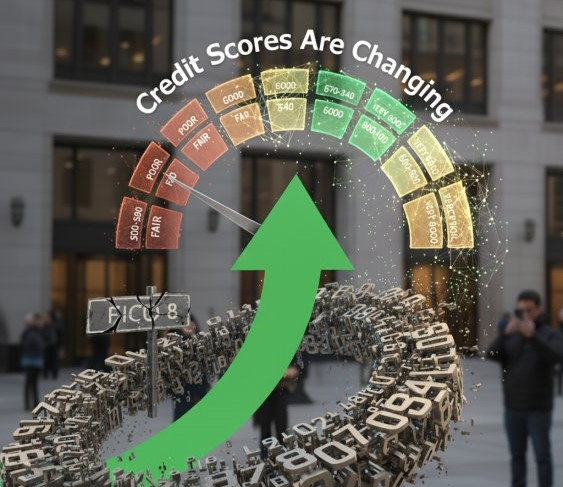By Philip Tirone
Credit scores are changing. In this episode, Philip Tirone talks with Matt Komos of OGMA Risk and Analytics about where scoring is headed, how alternative data like rent and utilities will be used, what Buy Now Pay Later means for your profile, and how lenders choose between FICO and VantageScore. Watch the video, then use the FAQs below for quick answers.
FAQs
- What is changing about credit scores after 2025?
- How will alternative data like rent reporting and utilities affect my credit score?
- Will Buy Now Pay Later accounts be reported to the credit bureaus?
- How should I use Buy Now Pay Later if I care about my credit score?
- Why are my FICO and VantageScore numbers different across bureaus?
- What does “give to get” reporting mean for my credit file?
- If my credit report has errors, who fixes them and how under FCRA?
- What is the best plan to rebuild credit after bankruptcy?
- Can I reach a 720 credit score quickly after Chapter 7?
- Are all credit builder products helpful for my score?
- Will insurers, subscriptions, and bank transactions be used in scoring?
- What practical steps should I take now to prepare for the new scoring era?
FAQ: What is changing about credit scores after 2025?
After 2025, scoring models place more weight on alternative data such as verified rent reporting, utilities, subscription payments, and bank transaction signals that reflect real cash flow. Expect more emphasis on consistent on-time behavior and account stability alongside traditional factors.
Consumers can strengthen profiles without taking on new revolving debt: opt into legitimate rent reporting, keep utilities current, avoid overdrafts, and maintain three small, auto-paid revolving accounts plus one installment line.
FAQ: How will alternative data like rent reporting and utilities affect my credit score?
Alternative data can convert on-time rent and utility payments into visible tradelines or verified signals that many models read, improving approval odds and pricing. To benefit, ensure the reporting is legitimate, identity-matched, and accurate; use autopay and keep confirmations to fix missed posts.
FAQ: Will Buy Now Pay Later accounts be reported to the credit bureaus?
Yes—more BNPL providers are beginning to furnish short-term installment plans. Early coverage can vary by bureau and provider, so one bureau may show BNPL activity while another does not. Monitor all three reports and verify balances, dates, and statuses; use FCRA dispute rights if errors appear.
FAQ: How should I use Buy Now Pay Later if I care about my credit score?
Use BNPL sparingly, keep the number of concurrent plans low, and repay on schedule. Track due dates closely and review how BNPL entries display across bureaus so late marks or misreporting don’t undercut your profile.
FAQ: Why are my FICO and VantageScore numbers different across bureaus?
Scores differ because bureaus can hold different tradelines, update on different cycles, and run different model versions. Tighten the spread by ensuring core accounts report to all three bureaus, fixing real errors first, automating on-time payments, keeping utilization low, and comparing like-for-like models (e.g., FICO 8 to FICO 8, VantageScore 4.0 to 4.0).
FAQ: What does “give to get” reporting mean for my credit file?
Many lenders that pull bureau data also furnish their customers’ account data back to the bureaus. This two-way flow helps keep files complete across Experian, TransUnion, and Equifax. Before opening accounts, ask whether they report to all three and how often; keep three revolving accounts active with tiny automated charges and one reporting installment line, and opt into reputable rent reporting.
FAQ: If my credit report has errors, who fixes them and how under FCRA?
Start by disputing with the bureau that shows the error; the bureau must contact the furnisher to verify. Provide clear documentation (statements, payoff letters, ID proofs). If the furnisher cannot verify accurately, the bureau must correct or delete. If issues persist, request reinvestigation, file a CFPB complaint, or consult a consumer attorney experienced in FCRA matters.
FAQ: What is the best plan to rebuild credit after bankruptcy?
Fix true reporting errors, maintain three low-limit cards with tiny automated charges paid in full, and add one cleanly reporting installment line. Keep utilization under 10%, pay on time every month, avoid new unnecessary debt, and layer in rent reporting where available. Monitor all three bureaus to ensure positive tradelines appear everywhere.
FAQ: Can I reach a 720 credit score quickly after Chapter 7?
Many consumers see large gains within the first year by opening three small-limit cards, adding one installment account, automating on-time payments, keeping balances near zero, minimizing inquiries, and cleaning post-BK reporting errors so perfect history posts consistently to all three bureaus.
FAQ: Are all credit builder products helpful for my score?
No. Only products that furnish real tradelines to the bureaus build history. Choose options that clearly report to Experian, TransUnion, and Equifax, and confirm posting on your reports. Be wary of “simulated” credit apps or high-fee products that don’t create tradelines or whose costs outweigh benefits.
FAQ: Will insurers, subscriptions, and bank transactions be used in scoring?
More models are evaluating bank cash-flow data and recurring bills (e.g., insurance, subscriptions) to better judge ability to repay. Keep accounts current, avoid overdrafts, and maintain consistent payment patterns so these signals, if used, reflect stability.
FAQ: What practical steps should I take now to prepare for the new scoring era?
Pull all three reports, fix verified errors, and place every bill on autopay. Keep utilization low, run three revolving accounts with tiny monthly charges paid in full, add one installment line that reports to all bureaus, opt into legitimate rent reporting, and monitor BNPL entries for accuracy. Recheck scores periodically using the same model versions for apples-to-apples comparisons.


